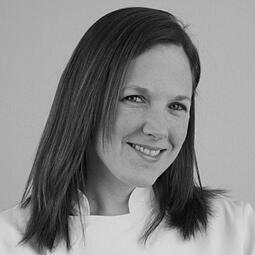You have an idea for a new food product – your friends think its great and you have never seen anything like it on the market. You want to manufacture it but have absolutely no idea where to begin!
You have two choices when faced with this daunting task -- you can spend hours and hours figuring out everything from how to start a business, how to find a commercial kitchen or what are the local, state and federal regulations. Or you can hire food industry consultants to help you on the way. It really depends on how much time you have, and how much your time is worth.
Hiring a consultant to guide you on your path is an easy way to bring your product to market. Consultants have experience with co packers, sourcing ingredients and modifying formulas to fit manufacturing parameters.
Here are a few things you should know about hiring and working with a food science consultant:
Keep It Local
Try to find a consultant or a consulting firm that is close to where you live. Face to face meetings, visit to their laboratory/kitchen and group tastings are all great ways to have a good relationship with the consultant and expedite results.
Expect Big Costs
An independent food science/industry consultant can cost you anywhere from $120 to $300 per hour for their expertise. A consulting firm may cost as much as $5,000 to $50,000 to even begin discussions. There will also be other costs that you need to pay separately like ingredient costs, shipping, lab testing, production runs, and third party analysis (sensory, chemistry, safety).
If you go to a consultant with only $5000 dollars, they will probably not take you on as a client. This is not enough funding to create, develop and manufacture your food product. They may be able to do certain parts of your projects (like you can hire them to JUST find you a co packer or do your nutritional analysis) but always keep in mind that bringing new products to market is expensive.
Plan to have at least $25,000 available to spend on research, development and manufacturing.
Be Clear On Budget
Tell your consultant how much you have and how much you can afford to spend. They can figure out the best way to work with your budget, or they may be honest and tell you that they can’t help you without more funding.
A moral food scientist will explain the overall costs and big picture expenses that you will have and will want you to have enough to make it through the entire process.
List Specific Deliverables
Be very specific with your consultant about what you want to achieve. If you have kitchen samples you have made, bring them a supply so they can evaluate with you and explain the limitations that may occur down the road. The more specific you are, the better the consultant can assist you.
Understand Capabilities
A food scientist is mostly just that -- they are the technical expert -- they may not be able to do your marketing, write your business plan, or confirm which flavors will sell best on the market. Make sure you understand what your technical consultant can and cannot do.
NDAs and Ownership
Make it clear to the consultant that you want to own your own formulas and have them sign an NDA [Non-Disclosure Agreement].
Most food scientists have no interest in owning or stealing your formula; they create concepts for other people all day long but to be safe and legit. Have them sign the NDA and confirm that you will own everything they develop for you.
Bringing a new product to market has many challenges -- finding a co-packer, making sure all regulations are followed, using the right equipment and understanding manufacturing limitations are all technical know-how’s that a food scientist deals with on a regular basis. Hiring one will not only save you time but long term money as well.
A food scientist will also make sure that you don’t violate any regulations (resulting in fines and recalls and damaged reputation).
Basically, don’t try to do this by yourself at home -- leave it to the experts!
About The Author

Rachel Zemser is a Certified Culinary Scientist, with experience and degrees in both food science and culinary arts. She has a BS in Food Science from the University of Massachusetts, an MS degree in Food Microbiology from the University of Illinois and a culinary arts degree from the New York Restaurant School/Art Institute. She has been working in the food industry for 18 years in both technical and creative roles and has been widely published in trade journals like Culinology, Food Product Design, Prepared Foods, The World of Food Ingredients and Food Processing. She spent 3 years at Unilever working as a microbiologist, 5 years at Kagome Inc. as their R&D chef and almost 3 years at Plum Organics Inc. Rachel’s home base is in San Francisco but she spends most her time all over the U.S. working with both large and small start up companies assisting them with their food science and R&D. Rachel’s work experience can be viewed on LinkedIn and she regularly tweets about the food industry. This article was originally posted on her website here.
Topics: Small Businesses Advice












